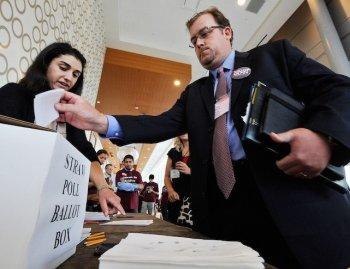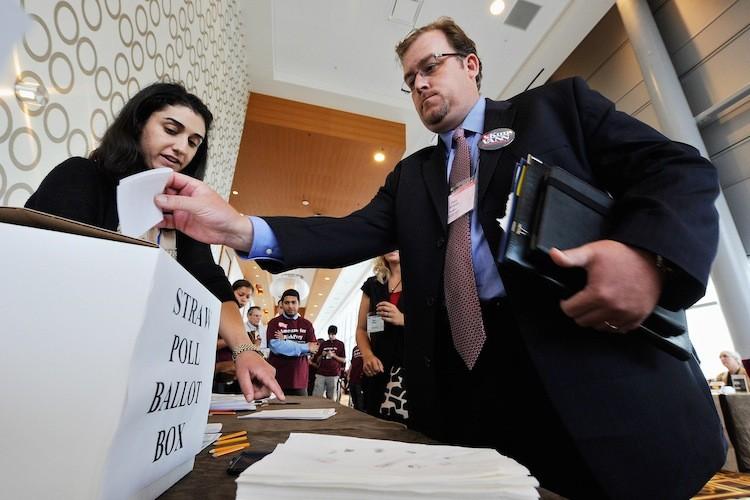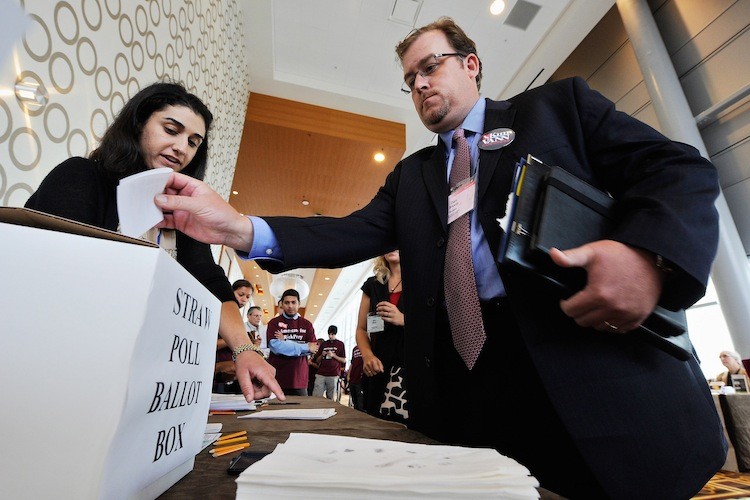In the lead-up to the 2012 elections, state governments across the country have enacted an array of new laws making voting and registering to vote more difficult than it has been in decades. According to a recent analysis, these laws represent a noticeable shift that could fundamentally change the electoral landscape.
Voting laws over the last century have seen a steady increase in the number of measures aimed at encouraging more people to become part of the democratic process. Fast-forward to 2011 and this trend appears to be reversing, as a growing wave of proposals and legislation place greater restrictions on voters—especially minorities.
A report released last month by New York University School of Law’s Brennan Center for Justice finds the voting rights of millions of Americans could be affected by new rules put in place this year. Wendy R. Weiser and Lawrence Norden wrote “Voting Law Changes in 2012,” which was published by the Brennan Center in October.
Since the beginning of 2011, Kansas, South Carolina, Tennessee, Texas, and Wisconsin require voters to show government-issued photo IDs—a document that millions of Americans don’t even have. Despite its popularity, other states have cut back on early voting. Florida and Iowa reversed earlier reforms affecting voters with past criminal convictions.
Other laws made it much more difficult for citizens to register to vote. In 2008, 60,000 Maine citizens registered and voted on Election Day, but the state has since abolished Election Day registration. Florida, Illinois, and Texas passed laws restricting voter registration drives, effectively putting an end to most of these efforts. Ohio ended its weeklong period of same-day voter registration.
In all, at least 13 states introduced bills to end highly popular same-day and Election Day voter registration, limit voter registration mobilization efforts, and reduce other registration opportunities in 2011.
While proponents of the new laws argue that they serve to prevent fraud and save money, the Brennan Center finds there are “extremely partisan” motives behind the recent legislation. The report calls the extent to which states have made voting more difficult “unprecedented in the last several decades.”
The Brennan Center says these new restrictions fall most heavily on young, minority, and low-income voters, as well as on voters with disabilities—individuals who already face the greatest hurdles in voting. They say this wave of changes threatens to “sharply tilt the political terrain for the 2012 election.” Their analysis is based on the 19 laws and two executive actions passed in 14 states this year.
Given that eligible voter turnout has been steadily declining in recent decades, the hindrances of new restricting laws will likely cut numbers even further. The Brennan Center says that although it may be too early to quantify exactly how the changes will impact voter turnout, they will certainly be an added burden to many.
According to the report, these new laws could make it significantly harder for more than five million eligible voters to cast ballots in 2012, and the impact will likely be felt in election results. The states that have already cut back on voting rights will provide 171 electoral votes in 2012—63 percent of the 270 needed to win the presidency.







